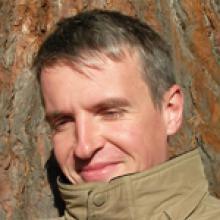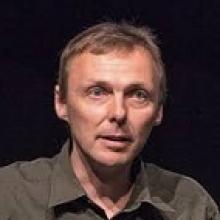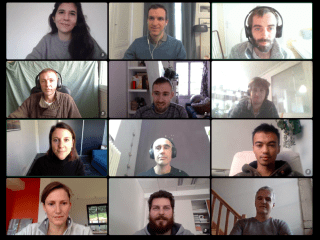The Cocoon Group
Members

Directeur de recherche
CNRS
Tel: 33 04 26 23 44 74

Chargé de recherche
CNRS
Tel: 04 72 43 29 09
Doctorant
UCBL
Tel: 04 72 44 81 42

Directeur de recherche
INRIA
Tel: 33 04 26 23 44 74
Le Cocon is both a research team and a think tank.
Research in “Le Cocon” team focuses on two main topics: multiscale evolution on one hand (i.e., studying the evolution of genetic systems while considering different levels -nucleotides, transposable elements, genes, genomes, microbiomes, organisms, populations, species, geography-), and environmental issues on the other hand. In both cases, we rely on modeling and data analysis, using a combination of statistics and computer science.
Le Cocon is also a place to think about the responsibilities of research and researchers in the anthropocene era, and about the role of non-researcher citizens in orienting and conducting research.
Multiscale evolution
- We have a long history of working on gene transfers. We develop new methods to detect these events in complex systems involving more than two levels (host, symbiont and parasites for example) and
- We use horizontal transfer detection to date species trees and to infer yet unknown biodiversity (extinct and unsampled) (Sthoriz (ANR, 2018)) .
- We have a lasting interest into convergent genomic evolution (Convergenomics - ANR, 2015)
- We question the usual way of testing bioinformatic methods (Evoluthon - ANR, 2019)
- We study the interaction between human populations, their lifestyles, and their gut microbiota (Microregal - ANR, 2015). We are notably interested in identifying cases of host-microbe coevolution and in better understanding transmission dynamics.
Environmental issues
- We develop computational methods to support an agriculture that relies on ecosystemic relationships between crops, the soil, its microbiota, and wild plants and animals (Community Garden Book - Inria, 2019)
- We develop statistical approaches to understand and predict crop yield variability with respect to meteorological conditions
Research in the anthropocene
- We participate to the science shop (UdL), the ethics platform (UdL), Labo1.5, the open science committee, Sciences Citoyennes, the shift project
- We organize a series of seminars to help us think about the position of scientific research in the history of the anthropocene, and about the position of scientists in the future of the anthropocene.
- We assemble committees of citizens to investigate to what extent scientific research can be democratized.
Teaching and outreach
- We teach at University of Lyon, University Lyon 1, INSA, Inria, ENS Lyon, we organize bioinformatics internships
- We regularly participate in the Fête de la Science, have contributed videos in the public transportation system in Lyon, give conferences at Université Populaire and contribute articles in general public journals.
- We develop the software Lifemap to explore the tree of life on computers and smartphones.
Prospective students and postdocs are invited to apply, as we often welcome visitors for internships or research projects.
Publications
Display of 211 to 222 publications on 222 in total
Quartet mapping and the extent of lateral transfer in bacterial genomes
Molecular Biology and Evolution . 21 : 86-89
Journal article
see the publicationSorting by reversals in subquadratic time
Annual Symposium on Combinatorial Pattern Matching (CPM) . 3109 : 1-13
Conference paper
see the publicationG+C3 structuring along the genome: a common feature in prokaryotes
Molecular Biology and Evolution . 20 : 471-483
Journal article
see the publicationFrom gene trees to organismal phylogeny in prokaryotes: the case of the gamma-Proteobacteria
PLoS Biology . 1 ( 1 ) : 101-109
Journal article
see the publicationThe source of laterally transferred genes in bacterial genomes
Genome Biology . 4 : R57.1-R57.12
Journal article
see the publicationPhylogenetics and the cohesion of bacterial genomes
Science . 301 ( 5634 ) : 829-832
Journal article
see the publicationOn a modular domination game
Theoretical Computer Science . 306 : 291-303
Journal article
see the publicationA phylogenomic approach to bacterial phylogeny: evidence of a core of genes sharing a common history
Genome Research . 12 : 1080-1090
DOI: 10.1101/gr.187002
Journal article
see the publicationDivergence between Drosophila santomea and allopatric or sympatric populations of D. yakuba using paralogous amylase genes and migration scenarios along the Cameroon volcanic line
Molecular Ecology . 10 : 649-660
Journal article
see the publicationConnected Joins in Graphs
International Conference on Integer Programming and Combinatorial Optimization (IPCO) . 2081 : 383-395
Conference paper
see the publication
